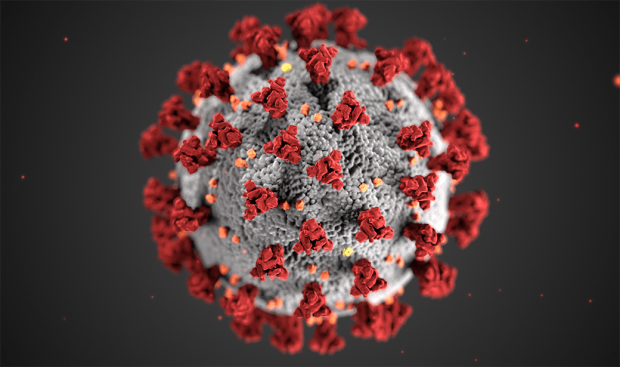Published on

By Jerry Duggan | Bond LSC
As countries hang their hopes on the drug remdesivir for battling COVID-19, recent modeling and computer-aided drug evaluation at the University of Missouri caution to keep an open mind and consider other drug treatments.
Kamlendra Singh at MU’s Bond Life Sciences Center evaluated remdesivir — an antiviral originally developed to treat Ebola — and several other drugs for long-term success in treating coronavirus causing the pandemic across the world. His results were published April 26 in the journal Pathogens.
“Remdesivir is working against COVID-19, but the other drugs may also be as effective as remdesivir,” said Singh, the assistant director of the MU Molecular Interactions Core, Bond LSC investigator and MU associate research professor of Molecular Microbiology and Immunology in the School of Medicine. “They are all FDA approved and we believe, based on our research, that they are worth looking into as a form of treatment.
Working with colleagues at the Karolinska Institutet in Stockholm, Sweden, where he has an appointment, Singh and his team started their COVID-19 specific research in earnest on February 20. Through a combination of bioinformatics, molecular modeling and computer-aided drug design, they evaluated antiviral medicines remdesivir, favipiravir, 5-fluorouracil and ribavirin for their effectiveness and potential emergence of resistance by COVID-19 RNA copying enzyme against these compounds.
Singh agrees that remdesivir works against COVID-19, but found may have limited effectiveness against COVID-19 since the known remdesivir resistance mutations in other coronaviruses are highly conserved (unchanged). Singh’s findings indicate SARS CoV-2, — the causative agent of COVID-19 — is capable of mutating to help it develop resistance to the drug.
Armed with this conclusion, Singh’s team looked at three additional compounds to treat the virus. With T-705 — a Japanese anti-influenza drug known as favipiravir — they concluded COVID-19 could also develop resistance, but its past effectiveness as a broad-spectrum inhibitor of RNA viruses made it worth a look. It was recently approved in Italy and China for treatment of COVID-19.
Additionally, Singh’s lab conducted research on two other broad-spectrum RNA polymerase inhibitors: 5-fluorouracil and ribavirin. 5-Fluorouracil is effective against a virus structurally similar to SARS-CoV-2 RNA replication enzyme in other viruses where it shows effectiveness. Therefore it stood to reason that it may also have some effectiveness in treating COVID-19.
Ribavirin — one of the most widely used, broad spectrum inhibitors of RNA-viruses — is a prime candidate to inhibit COVID-19 spread by binding to the active site of COVID-19 RNA copying enzyme, but doubt remains regarding its effectiveness since the virus can likely develop resistance to ribavirin through mutations or other mechanisms.
As detailed as Singh’s findings are, he is quick to acknowledge that he is part of a global scientific community and had a team of professionals and collaborators that helped him to complete this work.
“This progress is not made by individuals, but by teams,” he said. “In my lab, I have a talented group, and I know their expertise and how to best utilize their skills.”
Taking a deeper look at potential drugs in an analytical way like this contributes to the University of Missouri System’s NextGen Precision Health Initiative. The NextGen Initiative aims to improve use large-scale interdisciplinary collaboration in pursuit of life-changing precision health advancements and research.
While Singh concedes none of his team’s work constitutes a guaranteed effective form of treatment against the virus, he feels that researchers have an obligation to continue working on a cure and treatment, and should not accept the status quo of hundreds of thousands of deaths globally.
“These treatments, if they turn out to be effective, all have limitations,” he admitted. “But, in the midst of a global pandemic, they are worth taking a deeper look at, because we have reason to believe, based on our research, that all of these drugs could potentially be effective in treating COVID-19.”
Read more details about this research in “Feasibility of Known RNA Polymerase Inhibitors as Anti-SARS-CoV-2 Drugs,” published April 26 in the journal Pathogens. A more detailed version of this story can be found at https://decodingscience.missouri.edu/2020/04/30/treating-covid-19-drug-effectiveness/.